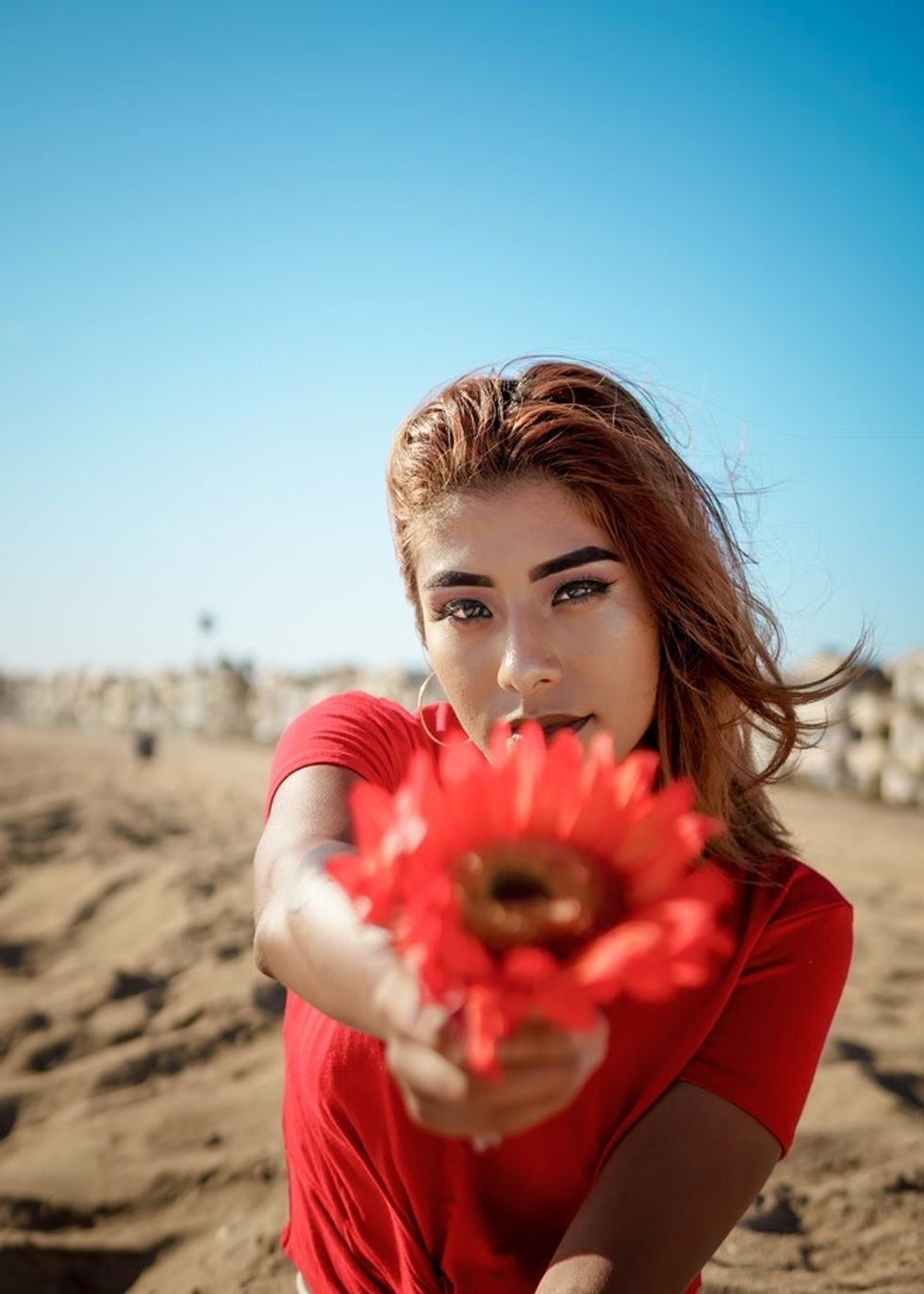For as long as I can remember, my nose didn't work like everybody else's.
My world existed through visual and auditory experiences, through what I could see and hear. I never noticed my lack of smell, or even considered it as important until I began to read and write.
I read descriptions in novels in which authors would describe succulent smells and the indulgent perfumes of the natural world. People wrote about the smell of warm cookies that reminded them of home or sweet flowers that signaled the beginning of spring. I read about food not only being a tasty experience, but an aromatic one.
I would try to smell everything, like lemons, spices and tea and other strongly smelling items, just to feel that sensation. I'd hold them close to my nose and breathe them in, and yet: nothing. My nose had no reaction. It wouldn't tickle or itch or feel any different.
I wanted to smell the flowers. I wanted to smell things when they were being cooked. I wanted to smell the world, a world I began to feel separated and isolated from. After all, nobody around me was experiencing what I was experiencing. Everybody could smell. The idea that somebody couldn't smell didn't seem real.
I thought I wasn't trying hard enough, that it would come to be if I kept pushing.
And worst of all, I began to think I was making it up, that this thing that I felt and lived with was all in my head.
It was then that I walked into my human anatomy class, and my teacher described a condition in a section of notes on the nervous system: anosmia.
Anosmia. I sounded the word out with my lips. He explained that people with anosmia couldn't smell. That some of them experienced synesthesia (the merging of senses) and could taste smells.
But most of all, I began to hear that it was possible. Everything I've felt and known was real. It wasn't my imagination.
All of the little things I had experienced before started to make sense. I remember being in third grade, and somebody farted (wonderful imagery; I know). The entire class started groaning and pinching their noses, and I couldn't understand why. I thought they were reacting to the sound of the fart because that's the only part I could understand. I didn't realize that the fart had a smell, something far more repulsive than its sound.
And other things started to make sense too. Whenever I'd play that jellybean game with my friends, with the beans that had repulsive flavors like grass and throw up, the disgusting beans didn't taste that bad to me. At worst, they tasted slightly bitter, but nothing worthy of gagging or spitting them out. Flavors of coffee, donuts, and fruit-flavored candies always felt muted to me before. I couldn't taste subtle differences, and I never knew why. I didn't stop to consider that my nose, my wonderfully glitching nose, may have something to do with it.
My world started to make sense, started to feel like something beyond my imagination. My nose doesn't work. That's not just in my head. It has a name: anosmia. It's a real thing, and I'm not the only person that has it. And that is a beautiful thing, to know that your truth is true.
I can't smell, and that is totally, completely okay. I may not be able to smell the roses, but at least I don't have to smell the farts.
















